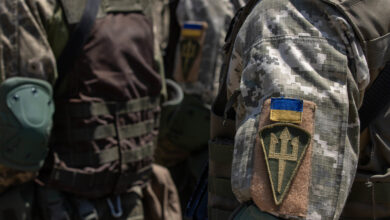The alarming rate of obesity among US soldiers is costing the military up to $1.35 billion annually in direct care expenses and productivity losses.
This was revealed by the American Security Project after conducting a comprehensive study on the broader impacts of obesity in the military system.
According to the DC-based think tank, two-thirds of active-duty servicemembers are considered overweight or obese.
This poses a serious concern about troop readiness as the problem “impacts manpower, health, and combat effectiveness,” said lead researcher Courtney Manning.
Additionally, obesity is costing billions in taxpayers’ money, with approximately $1.25 billion spent last year in treating obesity-related diseases and an additional $99 million in lost productivity while these patients are hospitalized.
“America can no longer afford to ignore this crisis,” the researchers wrote. “The US armed forces face an unprecedented challenge as obesity prevalence among service members continues to rise.”
Impact on Recruitment, Retention
The study found that obesity is also a leading driver of the persistent recruitment crisis in the military.
In 2023, about 52,000 applicants were reportedly disqualified because of their weight.
According to the researchers, the problem is “keeping people out of the service, forcing troops to leave the service, and raising the risks to those still in service.”
They also pointed out that none of the 22 military weight loss programs have proven effective, with only about three percent of troops managing to lose five percent of their body weight and keep it off longer than 12 months.
Recommendations
The American Security Project is urging the US military to take a more proactive approach to preventing obesity among its servicemembers.
This includes providing young soldiers with adequate health and nutrition education and access to quality food.
The researchers also want the military to officially classify obesity as a disease so proper treatment can be given.
“Without this written classification and its associated protections, service members face bias and discrimination for ‘exceeding weight standards,’ becoming ineligible for promotion, educational privileges, deployment, or disability compensation,” they wrote.












